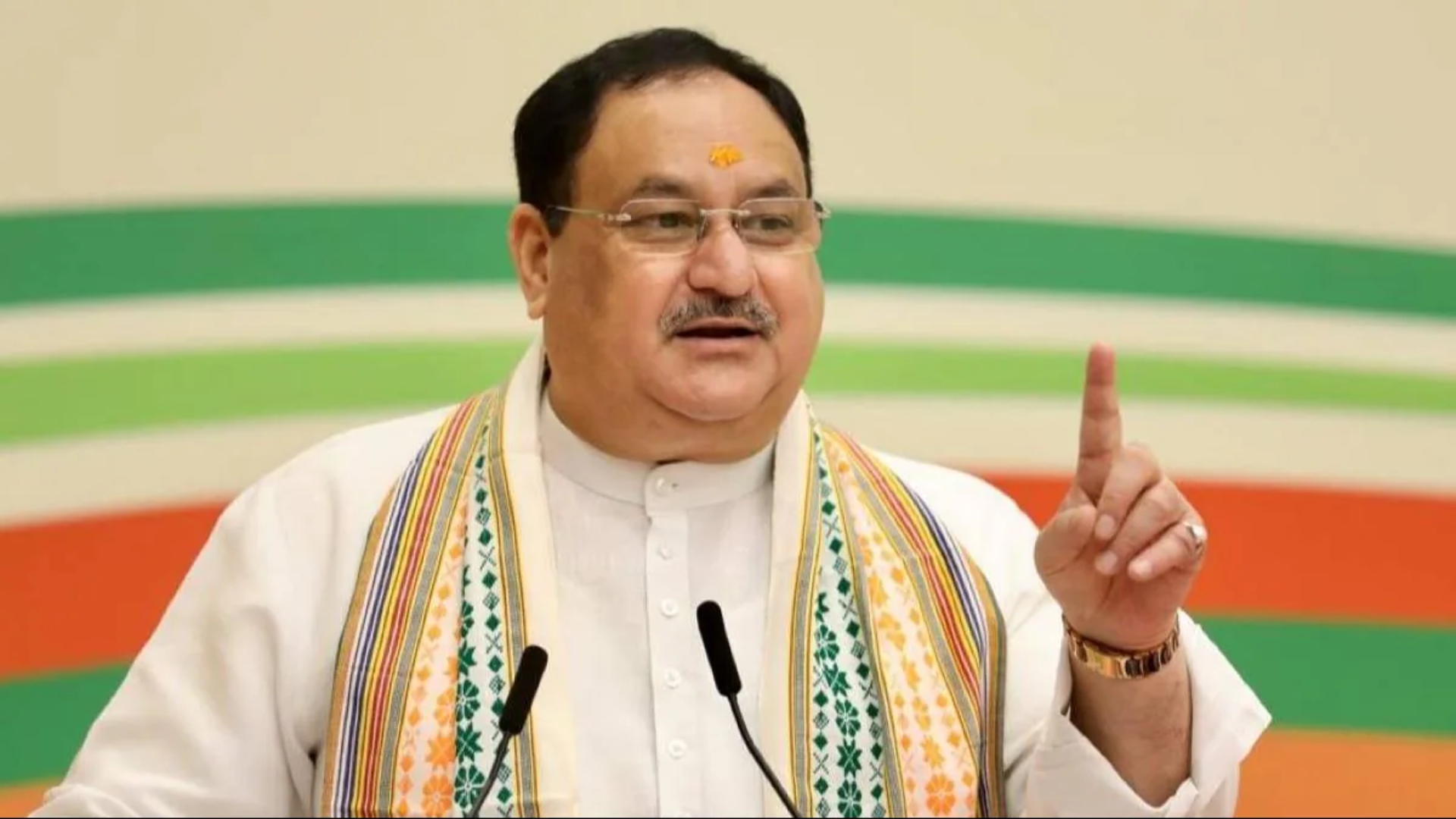In a recent speech in the Rajya Sabha, BJP President JP Nadda highlighted the significant implications of Article 35A and Article 370 in Jammu and Kashmir, emphasizing how these provisions created a unique and separate status for the region, which impacted both the people of Jammu and Kashmir and the broader nation.
Nadda began by explaining that Article 35A, introduced through a Presidential Order in 1954, determined who could be considered a permanent resident of Jammu and Kashmir. It defined a resident as someone who had lived in the state before 1944, which essentially restricted the rights of outsiders and caused a division in the rights of citizens within the state. He pointed out that this led to the creation of a situation where the region had “two prime ministers, two constitutions, and two flags,” a divide that lasted for decades.
He went on to assert that this duality was a direct consequence of the policies set in motion by Jawaharlal Nehru under Article 370, which gave special autonomy to Jammu and Kashmir. The provision also allowed for laws to be passed in Jammu and Kashmir that were in contradiction with those of the rest of the country.
POSCO Was Not Applicable In J&K Amid 370
For example, he mentioned that 106 laws passed by Parliament were not applicable in Jammu and Kashmir, including the Prevention of Atrocities Act, a critical piece of legislation for protecting human rights. One particularly shocking example he cited was that the Protection of Children from Sexual Offences (POCSO) Act was not applicable in the state.
Nadda also pointed out the gender discrimination that persisted under this arrangement. He highlighted that, under the laws of Jammu and Kashmir before Article 370 was abrogated, if a Kashmiri woman married a non-Kashmiri man, she lost her property rights, a provision that had long been a point of concern. He noted that this issue was supported vocally by none other than Jawaharlal Nehru, a major advocate for women’s rights in the country.
Moreover, he stated that despite the national implementation of the 73rd and 74th Constitutional Amendments, which were aimed at empowering rural local bodies, these were never extended to Jammu and Kashmir, further isolating the region from mainstream governance and development.
Nadda also made an important reference to the contributions of individuals from Pakistan who became prominent leaders in India, including Dr. Manmohan Singh, I.K. Gujral, and Lal Krishna Advani. He noted that these leaders, who came from West Pakistan, became Prime Ministers and Deputy Prime Ministers of India, yet a person from Pakistan-occupied Kashmir (POK) could not even contest local elections in Jammu and Kashmir due to the special provisions under Article 35A.
In conclusion, Nadda expressed that the abrogation of Article 370 was necessary to integrate Jammu and Kashmir fully into India, ensuring equal rights and opportunities for all its citizens, regardless of their origin or background. The region, he stated, had been held back by these special provisions for too long, and it was time to bring it in line with the rest of the country.
सबसे पहले, मैं संविधान के निर्माताओं का स्मरण करता हूँ, जिन्होंने गहन चिंतन, गहन मनन और व्यापक चर्चा के बाद यह संविधान हमें दिया। इसके लिए देश हमेशा उनके प्रति कृतज्ञ रहेगा, Says @JPNadda, beginning the day’s debate on constitution in #RajyaSabha@VPIndia pic.twitter.com/8tUA8GYYsP
— SansadTV (@sansad_tv) December 17, 2024
Why was Emergency imposed? Calls For Anti-Democracy Day
JP Nadda has invited the Indian National Congress (INC) to join the 50th anniversary of the Emergency as “Anti-Democracy Day.” He questioned the rationale behind the Emergency, asking whether the country was in danger. He clarified that the real threat was to the chair (the position of power), which led to the country being plunged into darkness for political gain.
One tight slap on the face of Congress by JP Nadda ji
It will be 50 years next year since the Emergency was imposed on 25th June 2025 & the day should be declared as
“ Anti-Democracy Day “ and CONGRESS must join as they claim themselves to be saviours of CONSTITUTION ???— Sheetal Chopra ?? (@SheetalPronamo) December 17, 2024
JP Nadda On Harassment Of Media Harassment
There has been a lot of discussion in the media recently about the term “Godi Media.” However, people often forget the true dedication of the media. If you look at the editorials from Indian Express and The Statesman from 1975, you will find them completely blank during the Emergency. We cannot forget the late Ram Nath Goenka, who stood up to Indira Gandhi, stating, “I came with a pot and I will leave with a pot.” He vowed to sacrifice his life for the protection of democracy.
Also Read: One Nation One Poll: Where Will NDA Get The Balanced Votes? 2/3rd Majority Race On























